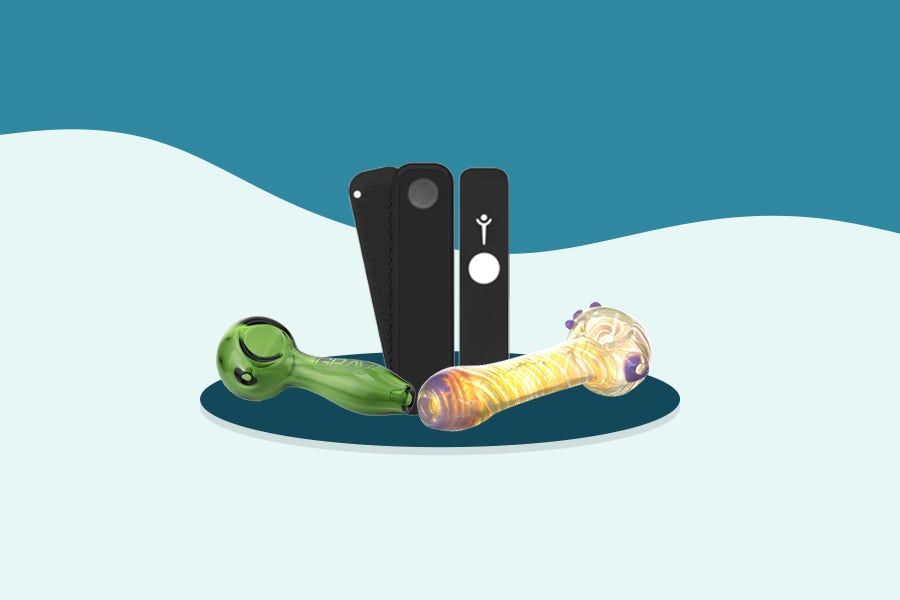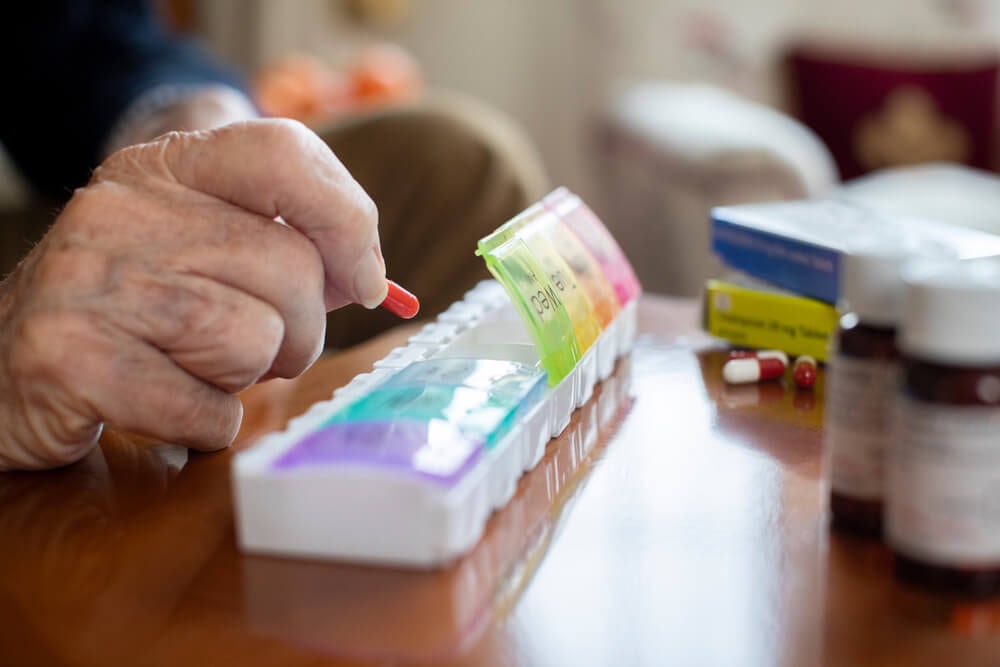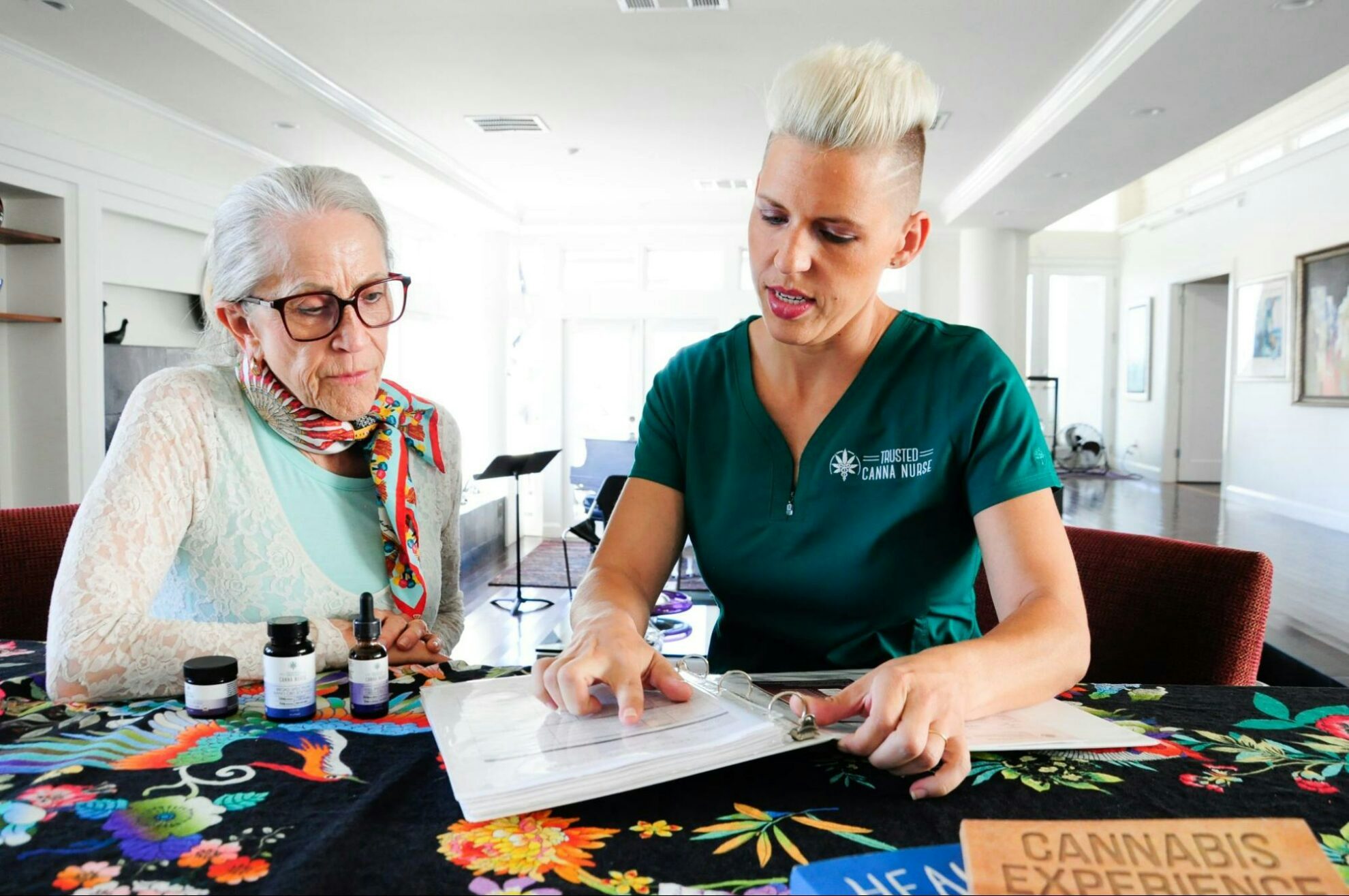Greening out is a slang phrase for consuming too much cannabis, specifically THC. Whether you take a bigger hit of the bong than expected or eat an edible that’s stronger than you thought, many cannabis consumers experience a green out at some point.
Greening out is a play on the term “blacking out” from alcohol, but they’re very different forms of overindulgence.
While cannabis is generally regarded as safe, overconsumption of THC can still have a myriad of adverse effects. New cannabis consumers are especially vulnerable to greening out as they navigate their tolerance levels, due to increasingly high levels of THC. 1
What does greening out feel like?
Greening out is unpleasant and often frightening. While every person experiences a green out differently, there are factors that influence if and when you green out, such as:
- dose of cannabis consumed
- THC tolerance
- previous cannabis experience
- your endocannabinoid system
Greening out is a sensation you know when you feel it. It’s essentially an overwhelming combination of any of the typical THC side effects. Your symptoms may include:
- dizziness/ lightheadedness
- lack of focus or drowsiness
- nausea or vomiting
- anxiety/ unease/ paranoia
- increased heart rate
- low blood pressure
- mild hallucinations
- heavy limbs or lack of mobility
- chills or cold sweats
- loss of balance
- dry mouth (also called cottonmouth)
Why do you green out?

Cannabinoids like THC bind with receptors in your endocannabinoid system. Two of the most-studied receptors are CB1 and CB2. CB1 is responsible for binding with anandamide, an internally produced endocannabinoid. But THC also binds with these receptors to create the high sensation you know and love.
Greening out happens when your CB1 receptors are overloaded with THC and will last until the THC can be metabolized or excreted from the body.
Some people are more prone than others to greening out, such as new or infrequent cannabis users. It could also happen if you’re sleep-deprived, dehydrated, or haven’t eaten.
Greening out may be more of a risk with certain forms of cannabis like edibles and concentrates, which are more potent than flower.
The biggest risk factor in greening out is when cannabis is combined with alcohol. Although greening out doesn’t affect the brain in the same way as blacking out from alcohol alone (you won’t likely lose all recollection of the night before), combining alcohol and cannabis is still dangerous and can seriously impair memory and reaction time. Alcohol increases THC levels in the blood and brain, and may extend the half-life of THC in the, which can make your green out experience longer and more disorienting.
How long does a green out last?
Greening out can last anywhere from a few minutes to a few hours. And since greening out is not just one thing, how long it lasts is subjective.
It’s impossible to say how long it will last for each individual, but your consumption method will have a direct effect on the length.
Smoking has a faster onset, which can mean a speedier green out, but edibles and other forms of ingested weed stay in your bloodstream for far longer, which can result in a longer green out.
While a green out won’t make you hungover in the same way as alcohol, if you consume too much cannabis in conjunction with alcohol, you may feel hangover-like symptoms the next day, including grogginess, headaches, an upset stomach, or dizziness.
Is greening out dangerous?

It’s not fun to green out, but it’s also not life-threatening. If you’re greening out after using cannabis alone, the symptoms should dissipate within a few hours.
But if you’ve combined cannabis with alcohol or other drugs, greening out can be dangerous and may require medical intervention. Additionally, if someone is continually vomiting, they may need medical attention to prevent extreme dehydration.
What are the long-term effects of greening out?
There are no known long-term effects of greening out, and there’s no evidence that greening out can cause lasting damage. Also, keep in mind there have been no reported deaths directly from cannabis consumption.
However, cannabis use can aggravate underlying conditions such as heart issues as well as interact poorly with other medications like sleeping pills. If you have heart issues you should avoid high-THC products in general because consumption can lead to increased heart rate and a drop in blood pressure.
It’s important to note that if you feel nauseous every time you consume cannabis, it may not be greening out, but could be a symptom of cannabinoid hyperemesis syndrome. CHS is a rare but serious condition where your body cannot tolerate THC consumption. Scientists don’t yet know what causes CHS, and the only known cure is to stop consuming THC entirely.
How to prevent a green out
Cannabis affects individuals differently, so knowing your tolerance is the best way to prevent a green out. The golden rule in cannabis consumption is to start low and go slow.
If you’re new to smoking, don’t try to smoke an entire joint by yourself or eat a whole edible. Consume only as much as you feel comfortable with. Take one or two hits, start with half an edible, then wait. You need at least 10 minutes after smoking and over an hour after consuming edibles to fully feel the effects. 2
- Don’t drink while consuming cannabis. The interaction of the two can increase the likelihood of greening out.
- Have food in your system. Consuming cannabis on an empty stomach can make the effects stronger, so it’s a good idea to have a snack beforehand–and maybe after too.
- Keep water nearby. Make sure you don’t get dehydrated as this can exacerbate green out symptoms and may cause lightheadedness on its own.
- Know the strength of your edibles. THC is converted to 11-hydroxy tetrahydrocannabinol in your digestive system, a compound more psychoactive than THC itself. An edible high lasts several hours longer than smoking because it’s being absorbed into your bloodstream through your digestive tract. When in doubt, cut the edible in half.
How to help someone else who is greening out
If you or someone you’re smoking with starts to green out, there are steps you can take to mitigate the unpleasant experience. Most of all, remember that greening out is a temporary experience and it will pass.
- Make sure you’re in a safe and comfortable space.
- Drink water and keep blood sugar levels elevated with snacks or juice.
- Take deep, deliberate breaths to calm the overactive nervous system. A guided breathing exercise can also be helpful.
- Reach for CBD. CBD is a modulator of THC and may help combat negative effects like anxiety and paranoia. Use a CBD oil to counteract the THC or combine CBD flower with your THC. 3
- Find a distraction like coloring, or listening to music or watching television.
- Smell, eat, or chew on black pepper. Black pepper contains beta-caryophyllene and may help combat some adverse effects by interacting with the CB2 receptor.
- Get fresh air. If you’re able to move, head outdoors. Take a quick walk or sit outside for a bit, taking deep breaths.
- Take a nap. If you’re not able to move, it can be helpful to just sleep it off.
Sources
- Stuyt E. (2018). The Problem with the Current High Potency THC Marijuana from the Perspective of an Addiction Psychiatrist. Missouri medicine, 115(6), 482–486.
-
Danielle McCartney, Thomas R. Arkell, Christopher Irwin, Iain S. McGregor, Determining the magnitude and duration of acute Δ9-tetrahydrocannabinol (Δ9-THC)-induced driving and cognitive impairment: A systematic and meta-analytic review, Neuroscience & Biobehavioral Reviews, Volume 126, 2021, Pages 175-193, https://doi.org/10.1016/j.neubiorev.2021.01.003.
- Niesink, R. J., & van Laar, M. W. (2013). Does Cannabidiol Protect Against Adverse Psychological Effects of THC?. Frontiers in psychiatry, 4, 130. https://doi.org/10.3389/fpsyt.2013.00130
Sign up for bi-weekly updates, packed full of cannabis education, recipes, and tips. Your inbox will love it.

 Shop
Shop Support
Support

















